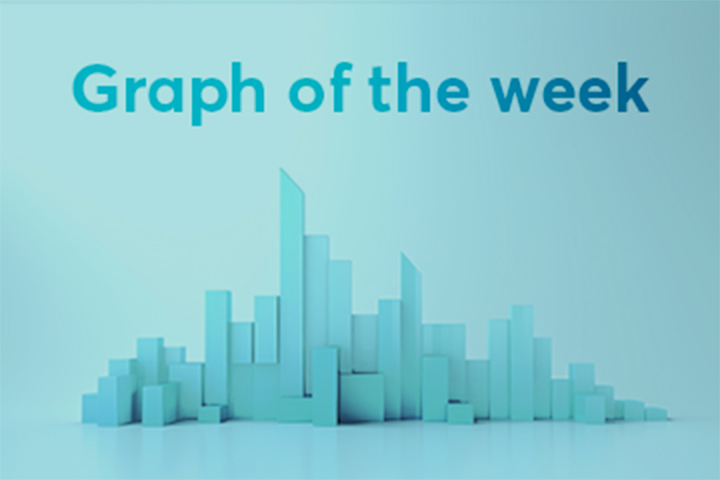Will AI replace human investment advisers?

Keytrade Bank
keytradebank.be
November 21, 2023
(updated October 31, 2025)
3 minutes to read
Is it still worth seeking out a human investment adviser now that AI is taking over?
Investors are increasingly using artificial intelligence (AI) to make important decisions. This is done using algorithms that can process large amounts of financial data in real time. AI can identify patterns in that data that help people make the right investment decisions. In theory, the technology is not swayed by the emotional impulses of humans and it only costs a fraction as much as a human adviser. Nevertheless, you should not write off human investment advisers straight away.
What is AI used for?
At present, AI is used primarily by so-called quantum investors, states Geert Van Herck, Keyprivate Chief Strategist at Keytrade Bank. These are investors who base their choices entirely on mathematical models and algorithms when deciding which shares to add to their portfolio. This equates to “equities that have the highest dividend yield or the cheapest valuation” or the like. AI is also being used to pick certain stocks that meet specific criteria or to better manage risks, he says.
The technology can also be used to detect market manipulation and fraud. This often happens at superhuman speeds. Due to the huge amount of data they can process, algorithms will often detect suspicious activity in real time. The technology can even be used to predict fraud based on the behaviour of rogue investors.
Human advisers do still play a major role in investing, says Van Herck, "but this may decline somewhat as we move into the future. Using AI, you can get an investment model to "think" for itself, which means AI can also buy or sell shares using an automated system.
In fact, more than 60 per cent of all transactions on major stock exchanges in the US, Europe and Asia are already now carried out by automated systems. In 2003, this figure was only around 15 percent.
With the advent of generative AI, or AI specifically focused on content creation, the world of investing will soon be changing even more. A survey of around 1,000 financial advisers and investors at the major US bank Morgan Stanley showed that the majority believe the technology will be a game changer for the industry. Furthermore, more than 60 percent said they were more interested in working with a broker or adviser who uses AI then those in the sector who don't.
What are the technology's limitations?
Despite the fact that AI can already do a lot and learns at lighning speed, Van Herck believes the human factor will continue to drive such models. “After all, you still have to "tell" an AI model what you want to achieve.” For example, human advisers can respond to the unique needs of their clients, such as their personal financial objectives and their risk appetite.
Algorithms will also find it difficult to predict some things, "such as the changeover from a rising to a falling market (or vice versa). The human factor can also add value here," says Van Herck. He draws on his own experience with Gambit, the algorithm used by Keytrade Bank to manage Keyprivate portfolios. "This algorithm often extrapolates a certain trend, which means a turnaround may sometimes be picked up rather too late. Here, the human factor can intervene and overrule."
Another potential pitfall is the risk of herd mentality. “If all these AI models see the same thing and keep on buying shares, for example, over-reactions can occur,” says Van Herck. Also, when a sell-off wave emerges in the market, AI models can start to dump stocks massively, causing “extreme movements”.
Such movements can cause markets to fall by 5 per cent or more in just a few minutes, but they are often over before human traders even realise something is going on. A well-known example was the "Flash Crash" in 2010, when around a trillion dollars of market capitalisation was wiped off the market in just a few minutes, after which the market recovered just as quickly.
Depending too heavily on AI can also lead to the value of human decision-making being underestimated. AI is likewise unable to predict unexpected shock waves in the market, such as the unforeseen collapse of Silicon Valley Bank. When something happens, algorithms can overreact, which can then aggravate stock market crashes.
Looking to the future
It’s not really just a question of which is better: AI or humans. The two will likely complement each other in order to reach the best decisions. Van Herck takes Keyprivate portfolios as an example. These portfolios use an algorithm to map out the risks of the individual holdings. As a result, better portfolios can be suggested.
Human advisers are likely to continue to play a role as supervisors of the AI models, says Van Herck. The abovementioned survey by Morgan Stanley reaches the same conclusion, with 82 percent of respondents believing AI will never be able to fully replace a human adviser.
According to Van Herck, there may also be a niche in markets that are “too illiquid for large investments.” According to the economist, these sectors will be “less suitable for working with AI models”, so there will still be a place for analysts to “hunt down opportunities there.”
Investing in AI rather than using AI?
You have probably noticed the fact that AI is on the rise. Since OpenAI revealed ChatGPT to the world in November 2022, every major tech company has jumped on the bandwagon. Technology is not only there to be used as a tool to help you invest. You can also invest in it directly yourself. But is it worth it? Find out in our blog post about investing in AI.


